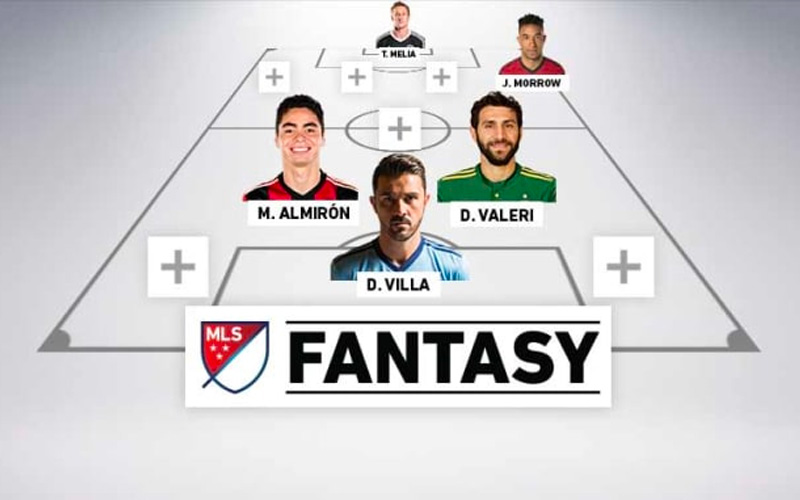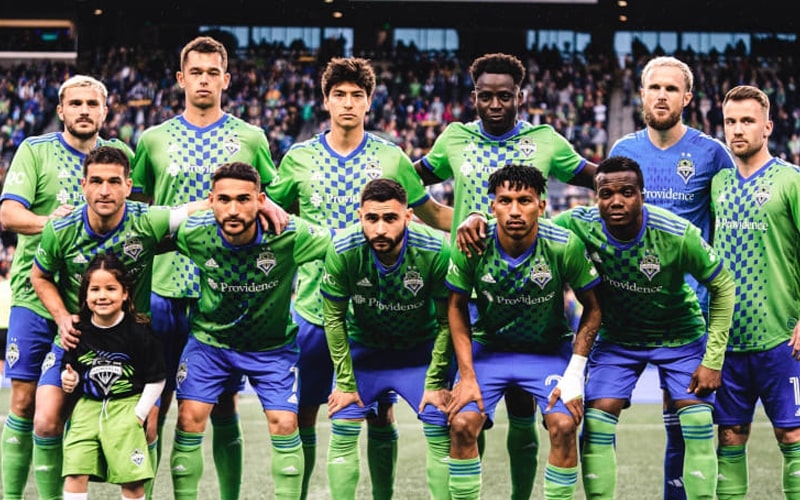The allure of soccer extends beyond the pitch. For fans of Major League Soccer (MLS), the excitement isn’t just about watching their favorite teams compete; it’s also about testing their managerial mettle. Enter MLS Fantasy—a virtual platform that allows fans to become managers, strategizing and competing against thousands worldwide. This guide delves deep into the world of MLS Fantasy, offering insights, strategies, and tips to help both novices and seasoned players succeed.
Understanding the Basics
At its core, MLS Fantasy is a game of strategy. Players are given a virtual budget to build a squad of real-life MLS players. Each week, these players earn points based on their real-world performances. The objective? To maximize points by making astute player selections, transfers, and tactical decisions.
The game mirrors the challenges faced by real-life soccer managers: budget constraints, player injuries, and the need to predict which players will perform best in upcoming matches. But while the challenges are many, so are the rewards. There’s the thrill of seeing your chosen player score a goal, the satisfaction of a well-played wildcard, and the bragging rights that come with topping your league.
Setting Up Your Team
Diving into MLS Fantasy is simple. First, create an account on the official MLS Fantasy website. Once registered, you’re provided with a virtual budget, typically around $100 million, to build your squad.
Your squad should consist of:
- 2 Goalkeepers
- 5 Defenders
- 5 Midfielders
- 3 Forwards
When selecting players, it’s crucial to strike a balance. While it’s tempting to fill your team with star players, budget constraints mean you’ll also need to find lesser-known players who offer good value for money.
Player Selection Strategy
The heart of MLS Fantasy lies in selecting the right players. Here are some strategies to consider:
- Form Over Reputation: A player’s current form is often a better indicator of potential points than their overall reputation.
- Fixture Analysis: Players with easier upcoming fixtures are more likely to score points.
- Positional Balance: Ensure you have a mix of attacking and defensive players in all positions.
- Budget Allocation: Invest heavily in positions where players tend to score more points, typically midfielders and forwards.
Remember, the MLS season is long, and player form can fluctuate. Stay updated with player news, and don’t be afraid to make transfers when necessary.
Scoring System
Understanding the scoring system is pivotal. Points are awarded based on various criteria:
- Playing Time: Players earn points just for appearing in a match, with additional points for playing 60 minutes or more.
- Goals and Assists: Forwards, midfielders, and defenders earn points for scoring goals, with midfielders earning the most. Assists also earn players points.
- Clean Sheets: Goalkeepers and defenders earn points if their team doesn’t concede a goal.
- Penalties: Points are deducted for missed penalties, yellow cards, red cards, and own goals.
Bonus points are awarded to players based on specific in-game actions, such as creating chances or making key tackles.
Transfers and Wildcards
In the ever-evolving landscape of soccer, flexibility is key. Players get injured, suspended, or hit a rough patch of form. MLS Fantasy allows managers to make a set number of free transfers each gameweek to adjust their teams. However, make more than the allotted number, and you’ll incur a points penalty.
Wildcards are your trump card. You get two each season. When played, a wildcard allows unlimited transfers for a single gameweek without any point deductions. The first is available from the start of the season until the end of the secondary transfer window, while the second is available after the secondary transfer window until the end of the season. Use them wisely—perhaps during a double gameweek or post a major transfer window.
Captaincy Choices
Your captain’s score is doubled each gameweek, making this choice crucial. It’s not just about picking your best player, but about predicting who will have an outstanding game. Factors to consider include the player’s current form, the difficulty of the fixture, and even the player’s historical performance against certain teams.
Vice-captains are equally important. If your captain doesn’t play, your vice-captain’s score is doubled. Always ensure both players are likely starters for their respective teams.
Joining and Creating Leagues
MLS Fantasy is more fun with friends. Join public leagues to test your skills against the global community or create private leagues to compete with friends. Private leagues can be classic (running all season) or head-to-head (weekly matchups against league members).
Staying Updated
The most successful MLS Fantasy managers stay informed. Follow team news for injury updates, lineup predictions, and player transfers. Websites, podcasts, and forums dedicated to MLS Fantasy offer valuable insights, tips, and strategies.
Advanced Strategies
As you become more familiar with MLS Fantasy, you can explore advanced strategies:
- Fixture Rotations: If two of your players have alternating home and away games, you can rotate them to maximize home game advantages.
- Double Gameweeks: Occasionally, teams play twice in a single gameweek. Capitalize by loading up on their players.
- Differentials: These are players owned by few managers but have the potential to score big. They can help you climb the rankings quickly.
Common Mistakes to Avoid
Avoiding pitfalls is as important as implementing strategies. Some common mistakes include:
- Chasing Last Week’s Points: Just because a player scored big last week doesn’t guarantee a repeat performance.
- Ignoring Defensive Players: While attackers often get the limelight, a solid defense can consistently earn points through clean sheets.
- Being Too Loyal: Don’t hold onto underperforming players for too long, even if they’re your favorites.
Engaging with the Community
The MLS Fantasy community is vibrant and welcoming. Engage in discussions, seek advice, and share your achievements. Platforms like Reddit, Twitter, and various forums are buzzing with tips, strategies, and player suggestions.
Navigating the International Breaks
During the MLS season, there are periods where international matches take precedence. This means key players might be absent from their MLS teams. Learn how to navigate these tricky periods, ensuring your team remains competitive even when stars are away on international duty.
Impact of Mid-Season Transfers
The MLS, like other leagues, has a mid-season transfer window. This can drastically change the dynamics of teams. New star players might arrive, or key players might depart. Understand the implications of these transfers on your fantasy team and how to capitalize on them.
Utilizing Chips Effectively
Apart from the wildcard, MLS Fantasy might introduce other chips or boosters that can be used to enhance your team’s performance for a particular gameweek. Learn about these chips, their impact, and the optimal times to deploy them.
Monitoring Player Price Changes
Player prices in MLS Fantasy aren’t static. They rise and fall based on ownership and performance. By keeping a close eye on these fluctuations, you can build team value, giving you more budget flexibility in the latter stages of the season.
Planning for the Playoffs
The MLS season culminates in the playoffs. This period can be different in fantasy, with fewer teams and more at stake. Strategize effectively for this crucial period, ensuring you have players from teams likely to progress deep into the playoffs.
Overcoming Common Challenges
Every fantasy manager faces challenges, be it a string of injuries, unexpected player rotations, or simply a bad gameweek. Discover ways to stay resilient, adapt, and bounce back from these challenges.
Engaging in Mini-Games and Side Contests
Apart from the main MLS Fantasy league, there are often mini-games or side contests that managers can participate in. These can offer fresh challenges and even prizes. Get to know some popular ones and how to excel in them.
The Psychology of Decision Making
Every decision in MLS Fantasy is a mental game, a battle between instinct and analysis.
Risk vs. Reward: Opting for a differential—a player owned by few managers—can be a game-changer. It’s the thrill of choosing an under-the-radar player and watching him deliver. But there’s always the risk. Will he perform, or will popular picks outscore him? Striking a balance is key, ensuring your team has a mix of reliable performers and potential game-changers.
Confirmation Bias: We all have our favorite teams and players. But in the world of fantasy sports, this bias can be a pitfall. Just because you support a team doesn’t mean their striker is the best choice for the next gameweek. Successful managers differentiate between heart and mind, ensuring decisions are objective.
Handling Pressure: The clock’s ticking, and you’re yet to decide on your captain. Pressure situations are common in MLS Fantasy. The key? Stay informed, trust your research, and remember—it’s a game, meant to be enjoyed.
The Role of Analytics and Data
In today’s digital age, data is the new gold, especially in fantasy sports.
Statistical Platforms: Websites like Whoscored and Understat offer a plethora of player statistics. From heat maps showing player positions to expected goals (xG) that indicate scoring potential, these platforms are treasure troves of information.
Data Interpretation: Numbers don’t lie, but they can mislead. A midfielder might have high xG, but is he starting the next match? Does he perform well against top-tier teams? Data is valuable, but context is king.
Avoiding Data Overload: With a sea of statistics available, it’s easy to drown. Prioritize key metrics that align with the MLS Fantasy scoring system and combine them with match insights and player news.
The International Influence
MLS, once a primarily North American league, now boasts talents from across the globe.
Foreign Stars: Players like Zlatan Ibrahimović and Wayne Rooney have graced the MLS, bringing European flair. Their experience and skill often make them valuable fantasy assets, but their price tags can be hefty.
Understanding Player Backgrounds: A South American playmaker might have impressive stats from his home league, but how will he adapt to the physicality of the MLS? Researching a player’s background can offer clues about their potential impact.
Injuries, Suspensions, and Team News
The unpredictability of soccer is what makes it thrilling, but it can be a nightmare for fantasy managers.
Official Sources vs. Rumors: Team news from official club websites or trusted journalists is gold. Rumors, on the other hand, can be misleading. Always verify before making transfer decisions.
Last-minute Changes: A star player getting injured during warm-up or a surprise tactical change can throw your plans into disarray. Always have a strong bench to mitigate such surprises.
The Return: A player returning from injury can be a differential. But will he start? Is he match-fit? Monitoring official news and manager press conferences can provide insights.
The Social Aspect: Engaging on Social Media
In the digital age, fantasy sports extend beyond the pitch and into the virtual world.
Twitter Influencers: Accounts like @MLSfantasyBoss offer weekly tips, player picks, and injury updates. Engaging with such influencers can enhance your managerial decisions.
Interactive Polls: Who to captain? Which differential to pick? Twitter polls offer a glimpse into the community’s mindset, helping you make informed choices.
Live Streams and Video Content: Platforms like YouTube have content creators analyzing past gameweeks, previewing upcoming matches, and discussing strategies. Engaging with such content can offer fresh perspectives.
Tips for Beginners: Getting Started
For those new to MLS Fantasy, the journey is as exciting as it is challenging.
Setting Realistic Expectations: Every manager, even the top-ranked ones, have bad gameweeks. It’s a marathon, not a sprint. Celebrate the highs, learn from the lows.
Learning from Mistakes: That differential who didn’t deliver? That captain choice that flopped? It happens. Reflect, adapt, and move on.
Community Engagement: The MLS Fantasy community is a goldmine of information. Engage in discussions, seek advice, and share your journey.
Conclusion
MLS Fantasy offers a unique blend of strategy, knowledge, and the thrill of soccer. Whether you’re a casual fan or a die-hard supporter, the game provides an opportunity to engage with the sport on a deeper level. As the MLS season unfolds, remember to enjoy the journey, celebrate the highs, learn from the lows, and always trust your managerial instincts.
Additional Resources
- Official MLS Fantasy Website: https://fantasy.mlssoccer.com/
- MLS Fantasy Boss: https://mlsfantasyboss.com/
- r/MLSfantasy: https://www.reddit.com/r/FantasyMLS/




